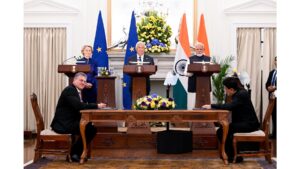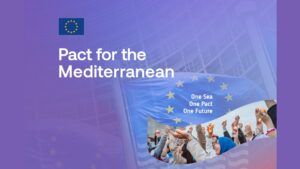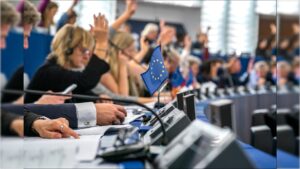European citizens had until the end of May to share their opinions on the measures needed to strengthen democracy within the EU.
In her Political Guidelines for her second term as Commission President in 2024, Ursula von der Leyen has pledged to defend and strengthen EU democracy. She identified the spread of fake news on social media and other online platforms as a key problem that must be addressed by making the relevant bodies more effective and raising public awareness. According to the latest figures, 45% of the EU population lacked the most basic digital skills in 2023. To protect democracy, von der Leyen proposed creating a European Democracy Shield, which is currently being developed in the EU.
Voters had until the end of May to give their views on the policies needed through a public consultation. The questionnaire, which was open to the public, gave the opportunity to comment on four major themes along the focal points of the emerging European Democracy Shield. The first was the fight against disinformation and foreign influence, which was identified as a key objective. Respondents could rank the various means of influence, such as the creation of fake profiles on social media, the covert financing of political activities, or the use of physical violence against journalists and politicians, according to their level of danger. They could then assess the response measures proposed by the European Commission and suggest how they could be put into practice.
The second major session focused on safeguarding the fairness and integrity of elections. These include both European and national elections. Protecting the freedom of the press will be an important part of the European Democracy Shield, so citizens were also able to express their views on this, but also on ideas such as creating a single European framework for the financing of political activities and promoting the responsible use of artificial intelligence.
The third and fourth parts of the questionnaire focused on society. The European Commission wants to take action to increase internet awareness and digital skills, so it was also possible to suggest solutions and assess the existing ones. As a final point, respondents were asked to give their views on how to involve citizens more. On the one hand, the Commission would like to see greater opportunities for participation in decision-making and decision making, and on the other, it would like to see young people acquire civic and democratic values at schools from a very early age.
The European Democracy Shield is expected to be finalised and launched this autumn.
Photo credit: needpix.com






